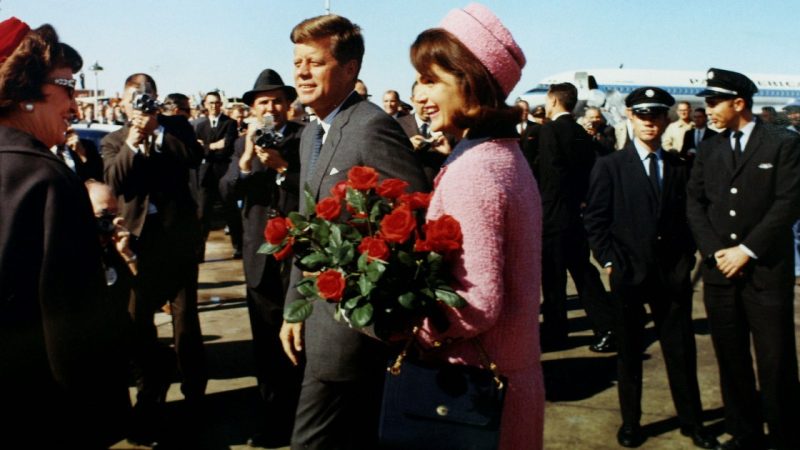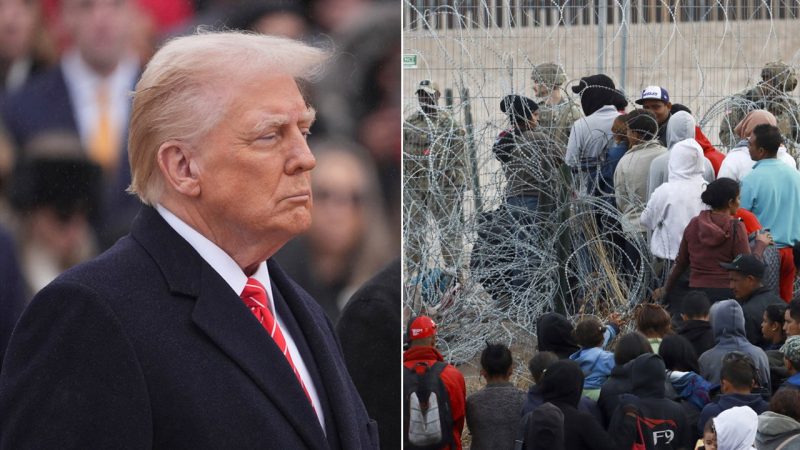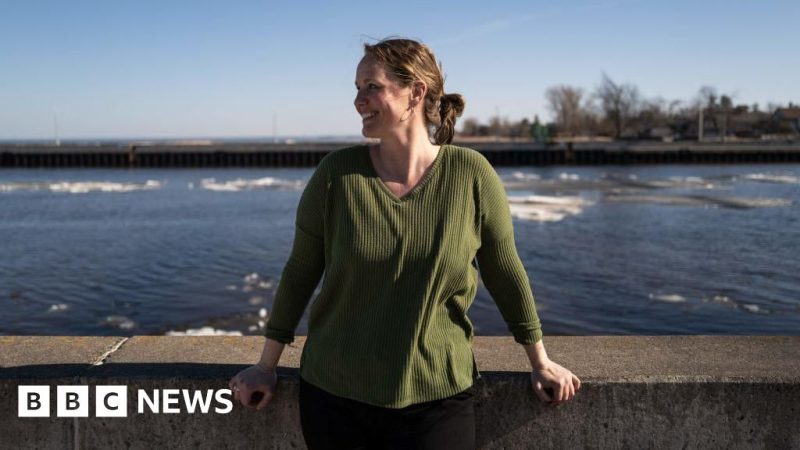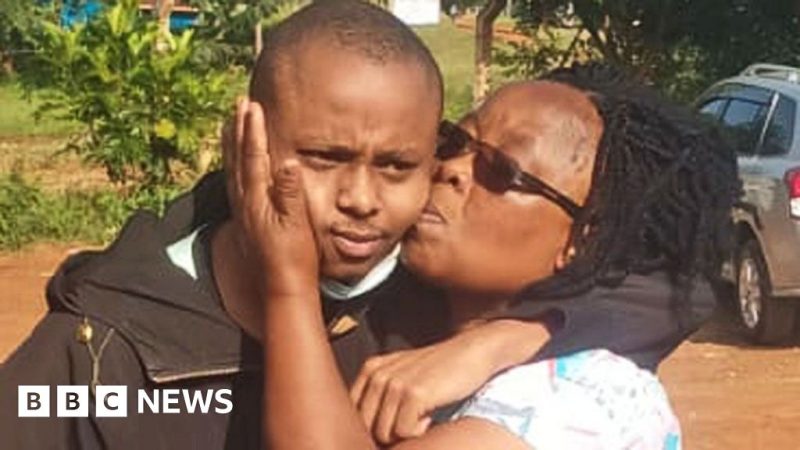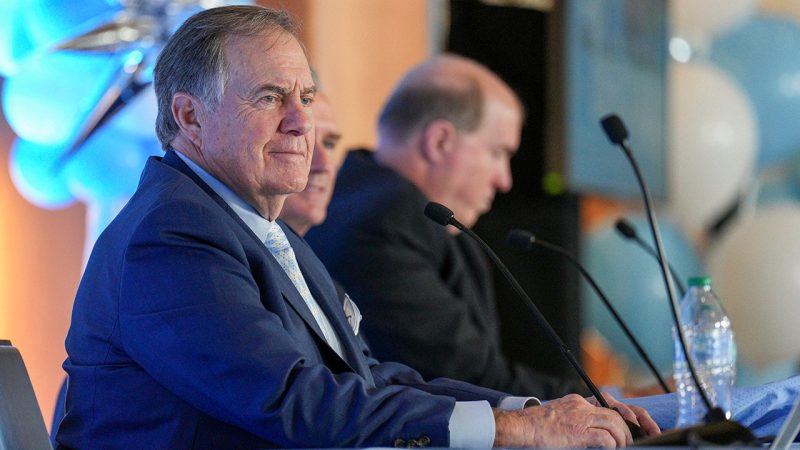‘I feel helpless’: India-Bangladesh tensions deny patients medical access | Health
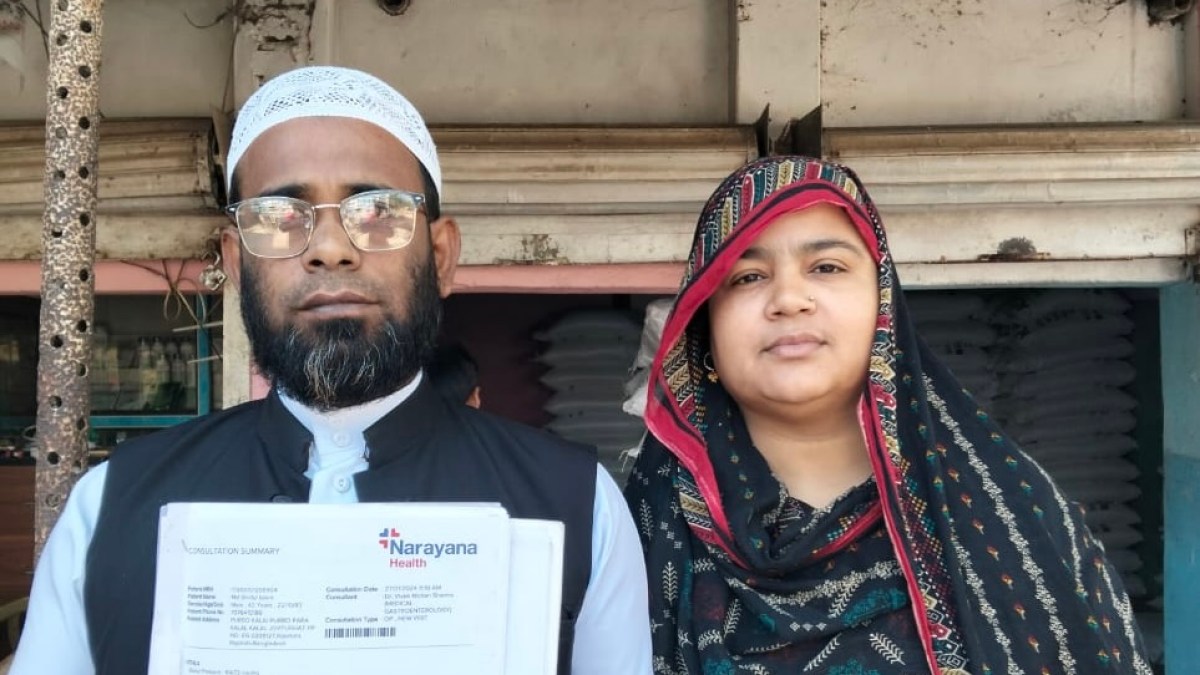
Dhaka, Bangladesh – Khadiza Khatun’s life took a devastating turn in September when doctors at Dhaka Medical College Hospital informed her that her 37-year-old husband, Mohammad Nuri Alam, urgently needed a liver transplant – a procedure unavailable in Bangladesh.
After careful research, they decided to go to India’s Asian Institute of Gastroenterology in Hyderabad, a trusted destination for many Bangladeshi patients.
But three months later, they are yet to secure visas for the trip. Amid escalating tensions between India and Bangladesh since the August ouster of Sheikh Hasina, an ally of New Delhi’s, from Dhaka, Indian authorities have significantly scaled back visa operations in Bangladesh.
The result: Khadiza and her husband have already missed two hospital appointments, on November 20 and December 20, and are unsure about whether they’ll be able to get to India in time for January 10, the next date the medical facility in Hyderabad has given them.
“We’ve tried everything since October – approaching travel agencies, seeking help from friends in government,” she told Al Jazeera. “India remains our only hope.”
Faced with unaffordable treatment options in Thailand and other countries, Khadiza is left watching her husband’s health deteriorate while relying on daily symptomatic treatment in Dhaka hospitals – hoping that the new year will bring her the visas her husband and she desperately need. “I feel helpless, running between hospitals without a solution,” said the mother of two.
Khadiza’s struggle reflects a larger crisis affecting thousands of Bangladeshi patients, who rely on India’s affordable healthcare, because of the visa restrictions introduced by the Indian authorities. The Indian visa centre, on its website, says that it is only “offering limited appointment slots for Bangladesh nationals requiring urgent medical and student visas” and is “currently processing only a limited number of visas of emergency and humanitarian nature”.
According to an Indian visa centre official in Bangladesh, daily online visa slots across five Indian visa centres in Bangladesh, including Dhaka, have “plummeted to around 500” from over 7,000 since the onset of the protests in July that led to Hasina’s removal from office.
For many Bangladeshis, like Khadiza, the real likelihood of getting visas feels even slimmer.
The slide in ties
India-Bangladesh relations have deteriorated since Hasina fled the country for New Delhi on August 5 after a weeks-long student-led protest against her increasingly authoritarian rule.
India has since sheltered Hasina, straining ties – the interim Bangladesh government of Nobel laureate, Muhammad Yunus, last week sent New Delhi a diplomatic note seeking her extradition.
Meanwhile, the Indian government has told Bangladesh it is concerned about a spate of attacks against Bangladeshi Hindus. Dhaka, on its part, insists that most attacks have been political in nature – against perceived supporters of Sheikh Hasina – rather than religious in their character. Bangladesh has also accused Indian media channels of exaggerating the scale of violence against Hindus.
These tensions between the two governments have also impacted visa issuances. On August 26, a protest broke out at the Indian visa centre in Dhaka over processing delays, after the authority resumed “limited operations” in protest-hit Bangladesh on August 13. Across the border, a Bangladeshi diplomatic mission in the northeast Indian city of Agartala was attacked by a mob in early December, prompting a strong protest from Dhaka.
On January 1, the usually bustling premises of the Indian visa centre in Dhaka appeared nearly deserted. Only a few applicants were waiting to submit their documents. Most applicants received calls to submit their visa applications and fees at the visa centre after manually providing a copy to the Indian High Commission in Dhaka days earlier.
However, Khadiza, who followed the same process a month ago, was unsuccessful. A visa centre official told Al Jazeera that the high commission has begun accepting more emergency applications, though online submission options remain limited.
Some Bangladeshis, who delayed their travel to India for treatment as they waited for tensions to ease, are now stuck with expired visas.
“My and my wife’s visas were valid until December 10, but we didn’t travel then due to tensions over Bangladesh-related issues in India,” said 40-year-old Shariful Islam, from Joypurhat in northwestern Bangladesh.
Islam suffers from a lung disease. He and five other family members – each with their own health issues, including his wife and father – have for the past four years been travelling regularly to the eastern Indian city of Kolkata and the southern city of Vellore for medical treatment.
In a rural area of Joypurhat, Ridowan Hossain, who runs a visa support agency, has meanwhile been struggling to secure visa appointment slots for patients, including a cancer patient urgently seeking treatment in India. Over 10 days, he repeatedly attempted to complete the online application process but consistently faced failures at the payment stage, he said.
When he called a helpline, he said he was just told to try again.
“I process over 300 Indian visas annually, but I haven’t been able to process a single one since July,” he said.
Now, many Bangladeshi patients are seeking alternative treatment options in Thailand, Malaysia, Singapore and Turkiye.
Mazadul Noyon, manager of Suea Noi Fit & Fly, a Bangkok-based medical and tour operator agency, told Al Jazeera that inquiries from Bangladesh have doubled compared to before August. “Although around 80 percent of patients consider Thailand after failing to secure an Indian visa, most abandon the idea upon learning of the 10-15 times higher costs in Thailand,” he said.
For example, the initial treatment cost for Khadiza’s husband – covering diagnosis, medicine, consultation, and related expenses – along with travel and accommodation, would range from US$1,000 to US$2,000 in India, compared to at least US$10,000 to US$15,000 in Thailand.
For a cardiac ring implant, costs in Thailand range from $5,000 to $20,000 – depending on the hospital, excluding travel and accommodation. In India, $2,000 covers top-quality rings and medical care. The cost of these procedures is even higher in countries like Malaysia, Singapore and Turkiye, making them unaffordable for most Bangladeshis.
![Ridowan Hossain, who runs a visa support agency in Joypurhat, Bangladesh, has been struggling to secure appointments for his clients [Moudud Ahmmed Sujan/Al Jazeera]](https://www.aljazeera.com/wp-content/uploads/2025/01/Ridowan-3-1735961040.jpg?w=770&resize=770%2C578)
A lose-lose situation
But it isn’t just Bangladeshi patients who are suffering – India’s “medical tourism” industry, which offers high-quality treatment to patients from the developing world at relatively lower prices than in the West, has taken a hit too.
Industry data shows that 60 percent of India’s two million international patients annually are from Bangladesh. However, since late August, the number of Bangladeshi patients has dropped by 80 percent. India’s medical tourism industry was worth an estimated $9bn in 2023.
Amitabha Chattopadhyay, a paediatric cardiologist at Narayana Superspeciality Hospital in Kolkata, told Al Jazeera that his hospital has seen a 5 percent decline in Bangladeshi patients.
“But the hospitals treating chronic conditions are facing even greater challenges,” he said.
Hospitals in Kolkata, the nearest city to Bangladesh and culturally similar, are the worst affected.
At Peerless Hospital, a 500-bed multi-speciality hospital in Kolkata, daily outpatient visits from Bangladeshi patients have dropped from 150 to under 30, with nearly no admissions, The Print, an Indian digital publication, has reported, citing the hospital’s CEO, Sudipta Mitra.
Other key impacted hospitals include Narayana Health in Bengaluru, Apollo in Chennai, and Christian Medical College in Vellore, according to Alexander Thomas from the Association of Healthcare Providers of India.
Meanwhile, two hospitals in Kolkata and Tripura reportedly refused Bangladeshi patients, citing alleged disrespect to the Indian flag, further straining ties, according to local news reports in early December.

‘Very difficult’
Touhid Hossain, the acting head of Bangladesh’s Ministry of Foreign Affairs, acknowledged that the country’s patients were struggling because of Indian visa restrictions.
“Not just difficult. It has become very difficult,” Hossain told Al Jazeera.
M Humayun Kabir, a former diplomat and president of Bangladesh Enterprise Institute who previously served at the Bangladesh mission in Kolkata, echoed this sentiment.
“Emergency visas were supposed to be processed, but I’ve received reports otherwise … It appears there hasn’t much opportunity to obtain [Indian] visas,” he told Al Jazeera.
Bilateral relations appeared to be thawing when Indian Foreign Secretary Vikram Misri visited Dhaka on December 9, marking the first high-level meeting between India and Bangladesh since the recent political changes in Bangladesh.
Hossain confirmed that Bangladeshi authorities raised visa-related concerns with their Indian counterparts during the visit. “They assured us that they would increase visa issuance and prioritise urgent cases,” he said.
Yet there has been no change so far, say patients and visa agents.
India’s Foreign Ministry and the High Commission of India in Dhaka did not respond to a request from Al Jazeera for comments on the criticism of New Delhi over visa restrictions.
But during a meeting with diplomatic correspondents in Dhaka on December 24, Indian High Commissioner Pranay Verma claimed that India’s visa issuance in Bangladesh still surpasses that of “probably all other embassies combined”.
He also said that he remains optimistic about the future of Dhaka-New Delhi relations – a sentiment that Hossain, the de facto foreign minister of Bangladesh, echoed when speaking with Al Jazeera.
Analysts, however, remain sceptical.
“Both parties speak about good relations, but the reality suggests otherwise,” said Snigdhendu Bhattacharya, an independent Indian journalist specialising in South Asian issues.
Kabir, the retired Bangladesh diplomat, said he hoped the two governments would be able to insulate visa issuances from their broader diplomatic tensions.
If they don’t, the neighbours could face consequences, he cautioned.
“Such stances create a negative mindset among the public and can harm long-term people-to-people relations,” Kabir said.
But Khadiza doesn’t have the luxury of waiting much longer.
“The visa support agency still hasn’t submitted the application,” she said, her voice heavy with disappointment. She’s mentally preparing herself for the update that the application couldn’t be submitted – even as the clock ticks away for Alam, her husband.
